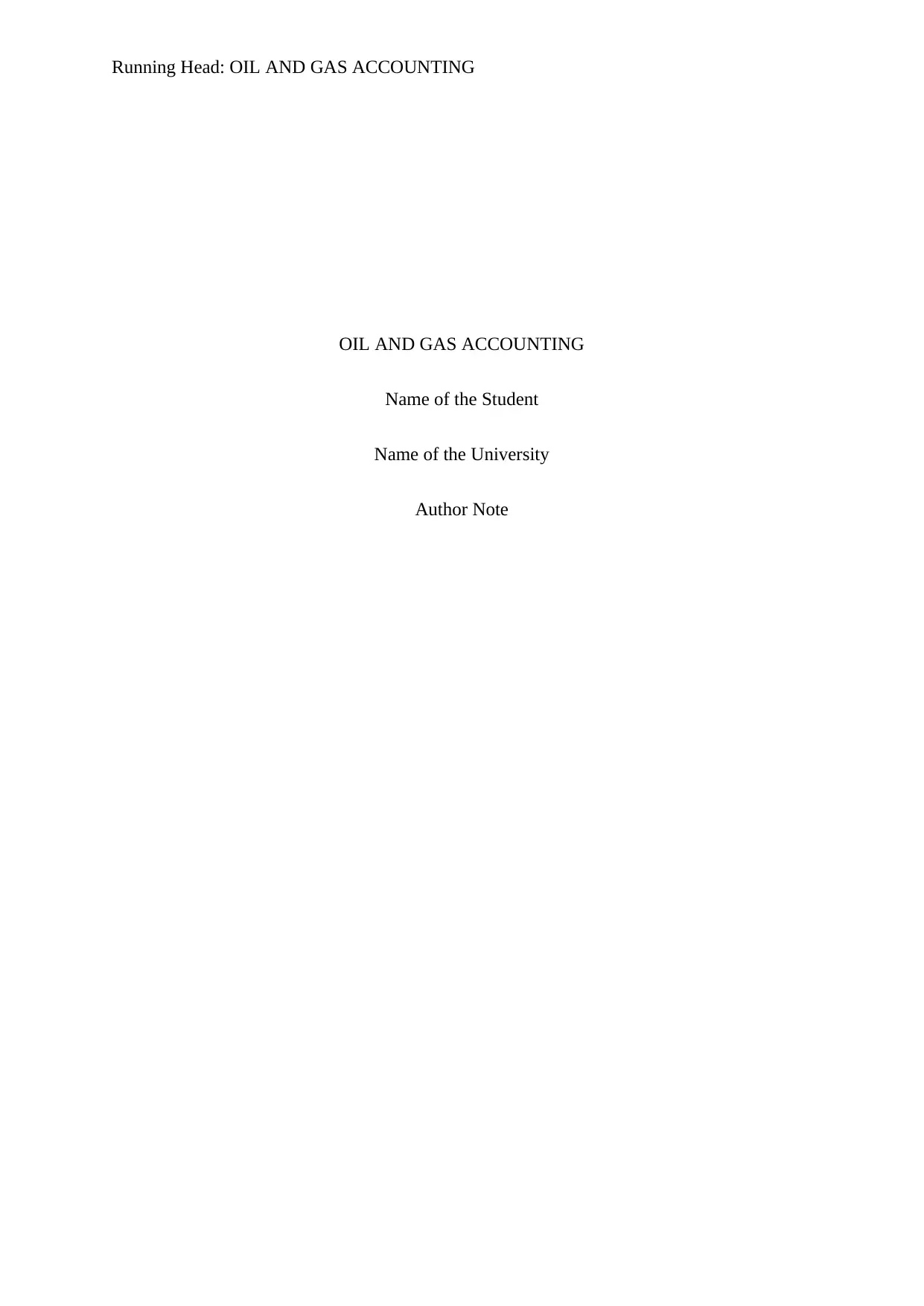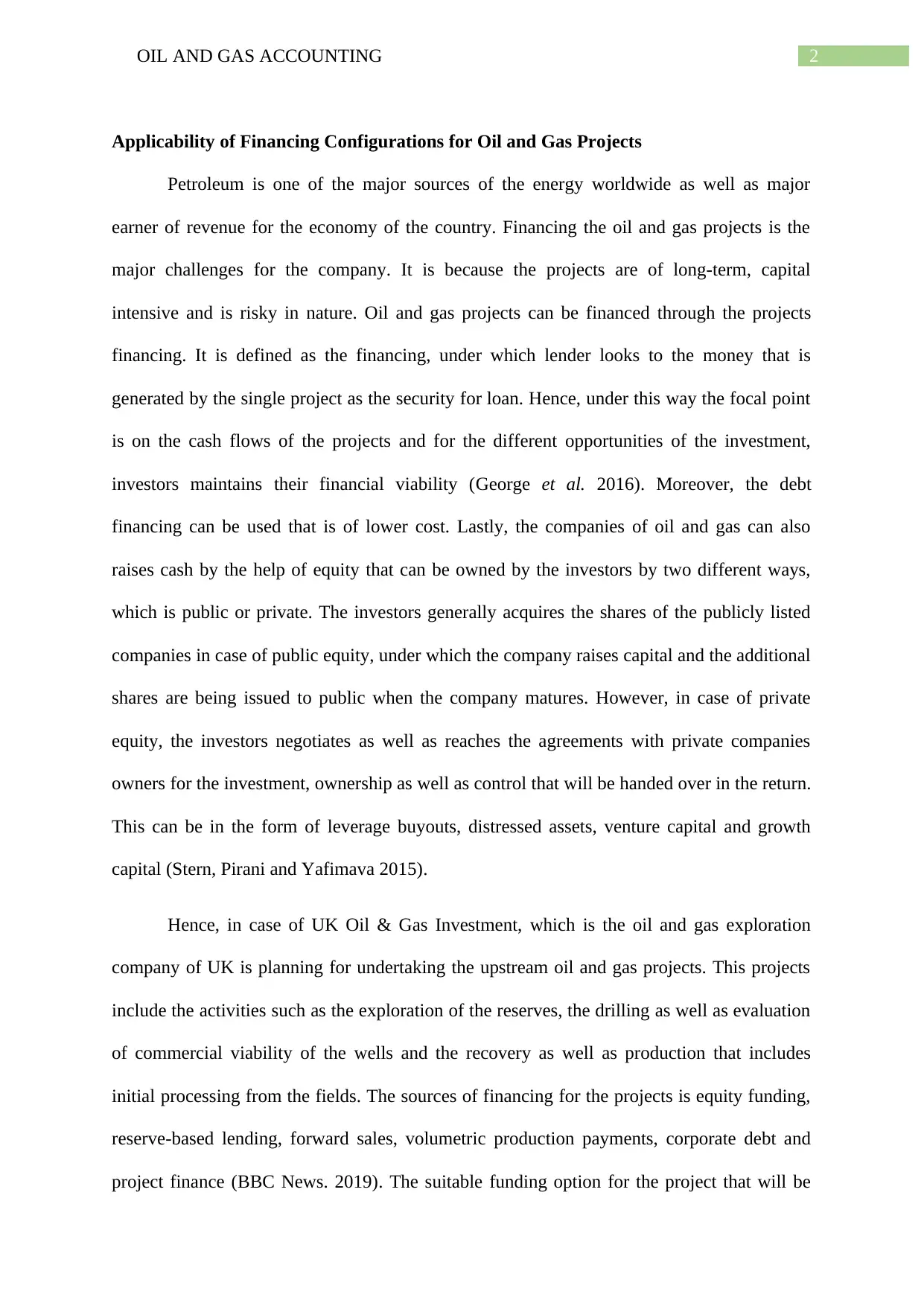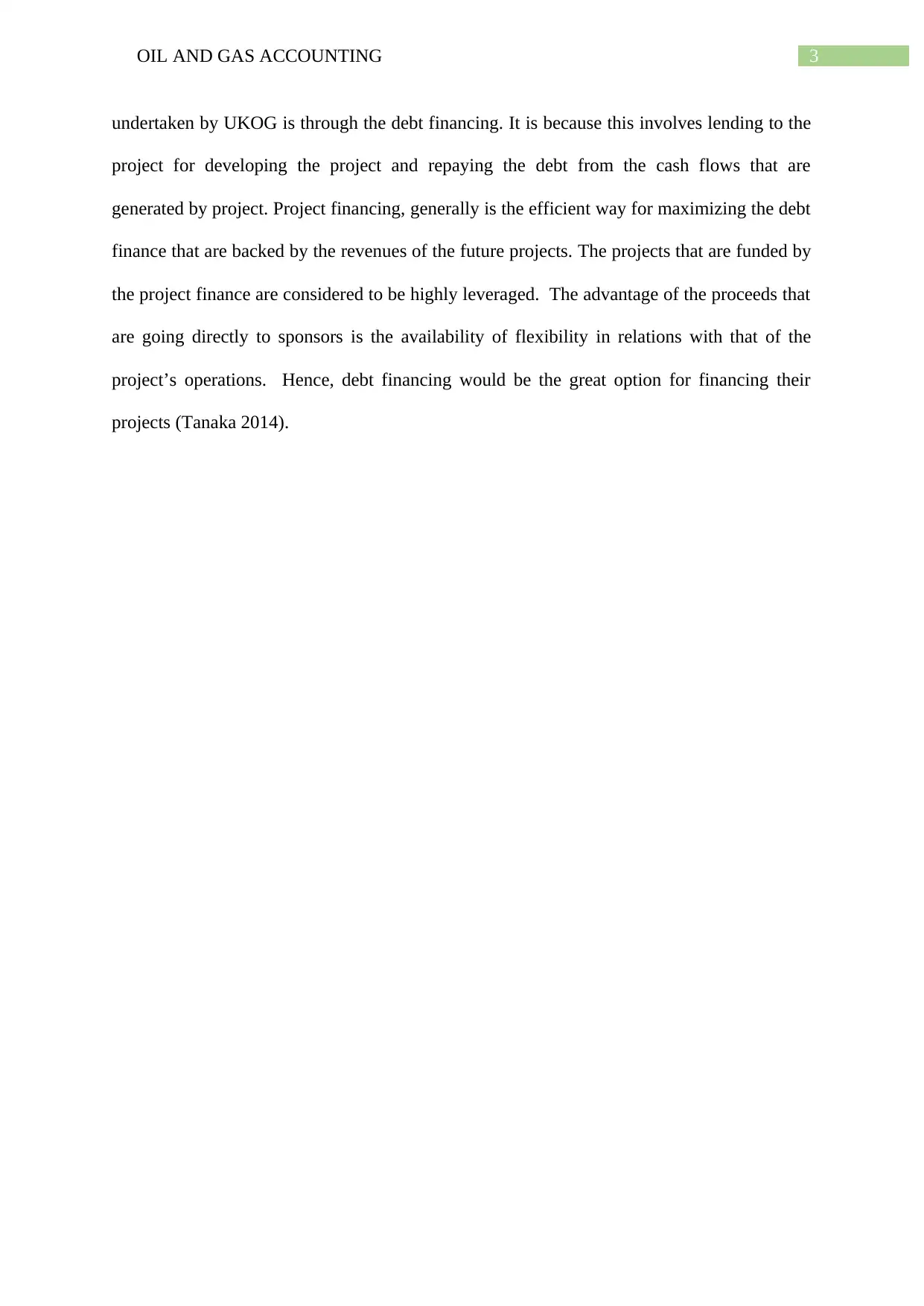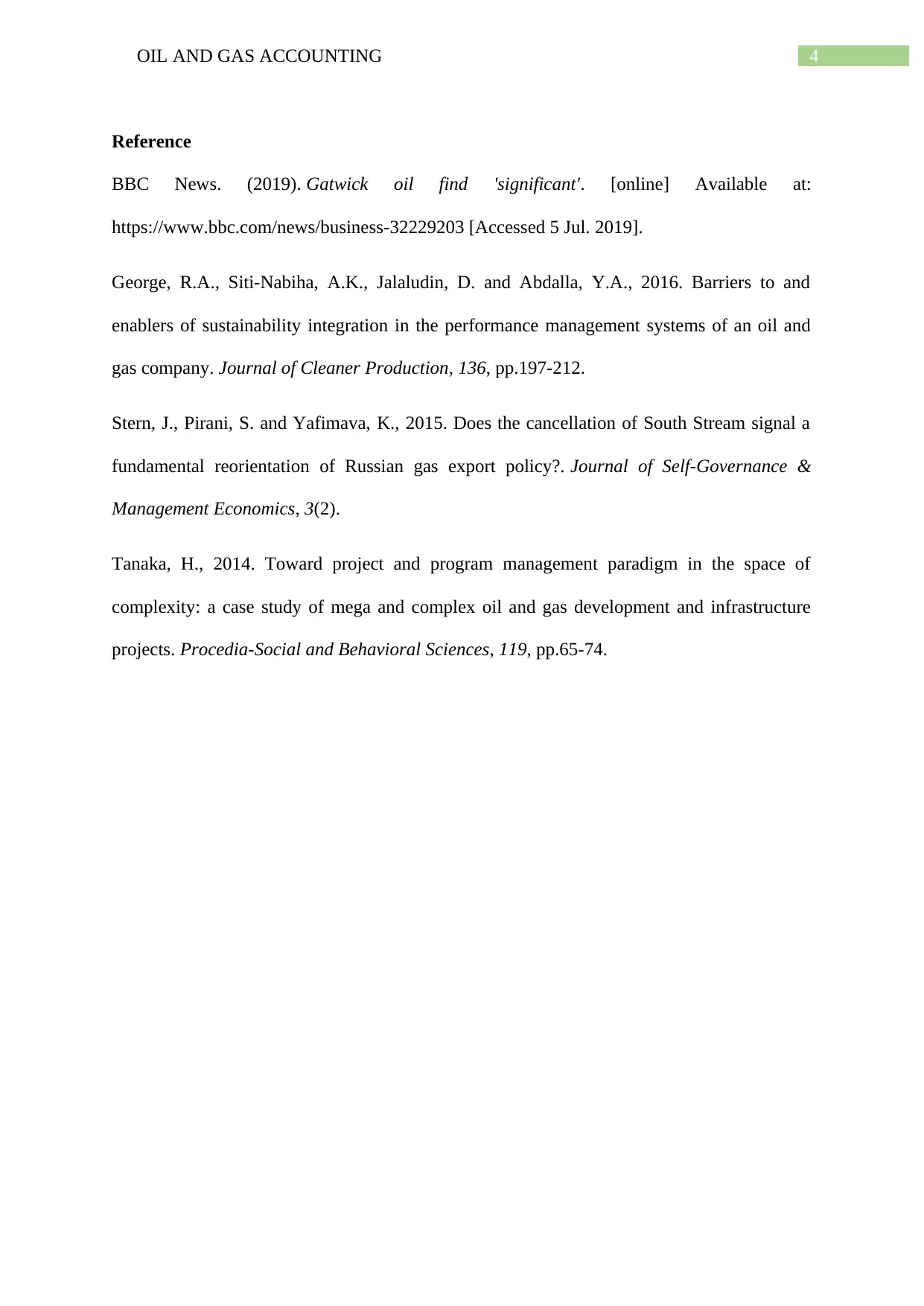Oil and Gas Accounting: Financing Configurations and Debt Analysis
VerifiedAdded on 2022/11/25
|5
|733
|82
Report
AI Summary
This report provides an overview of financing options for oil and gas projects, focusing on the challenges and opportunities in the industry. It examines the importance of project financing, especially in the context of long-term, capital-intensive, and risky ventures. The report discusses the significance of debt financing and equity funding, considering both public and private equity. A case study of UK Oil & Gas Investment (UKOG) is presented, highlighting the suitability of debt financing for their upstream projects. The report references sources like BBC News and academic journals to support its analysis, emphasizing the efficiency of project financing in maximizing debt and the flexibility it offers in project operations. The conclusion underscores the advantages of debt financing for UKOG’s projects. The report also references the importance of cash-flow analysis and the impact of recent capital-market dynamics on the relative competitive position of oil and gas companies.
1 out of 5











![[object Object]](/_next/static/media/star-bottom.7253800d.svg)